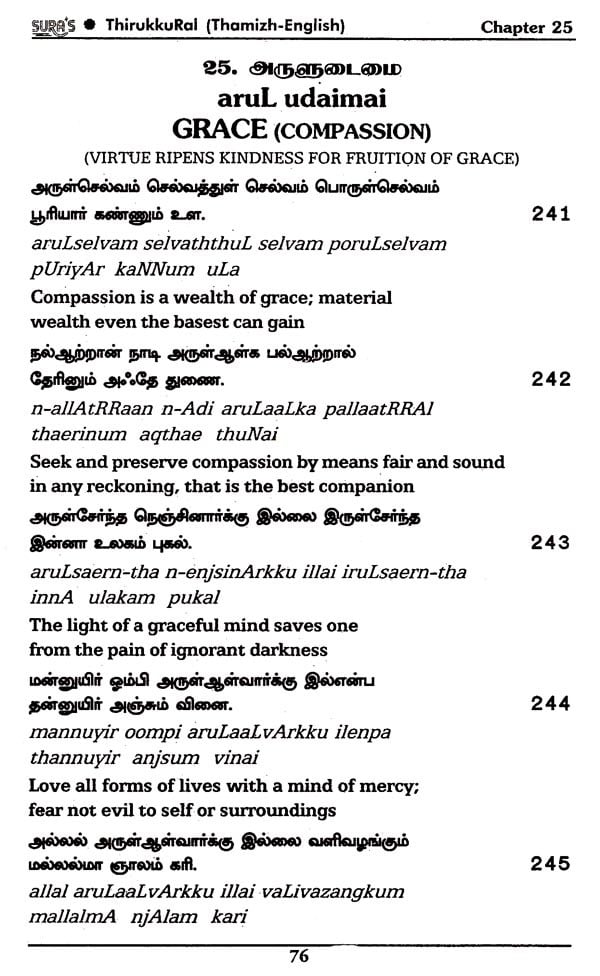Introduction
Organizational behavior and community work are disciplines often approached through sociological and managerial frameworks in the modern era. However, traditional Indian texts provide profound psychological and ethical foundations for these fields. The Bhagavad Gita, a spiritual dialogue embedded in the Mahabharata, and the Thirukkural, a Tamil ethical treatise by Thiruvalluvar, offer complementary paradigms rooted in dharma (duty), aram (virtue), and self-realization.
The Bhagavad Gita and Organizational Behavior
The Bhagavad Gita offers a profound philosophical foundation for ethical action and self-mastery. Central to its teachings is the concept of Nishkama Karma—performing one’s duty without attachment to outcomes. The Gita promotes inner discipline, emotional balance (samatva), and alignment with one’s dharma (righteous duty), making it highly relevant for personal growth, leadership, and organizational conduct. Its emphasis on self-knowledge and purposeful action has inspired models of transformational leadership and spiritual psychology.
Duty and Detachment (Nishkama Karma)
One of the Gita’s foundational teachings is Nishkama Karma—the concept of performing one’s duties without attachment to results. Lord Krishna advises Arjuna, “You have the right to perform your prescribed duties, but you are not entitled to the fruits of your actions” (Gita 2.47). In organizational settings, this translates into work ethic, accountability, and emotional resilience.

Bhagavad Gita
According to Pande and Gupta (2014), the Gita’s teachings support the cultivation of inner stability and detachment from external validation. This reduces burnout and fosters a more sustainable approach to leadership and productivity. Managers guided by such principles can maintain equipoise in the face of success and failure.
Self-Mastery and Emotional Intelligence
The Gita emphasizes control over the self, or Atma Jaya, as essential for leadership. A leader must first govern their inner world—desires, fears, and impulses—before effectively managing others. This parallels modern discussions on emotional intelligence (EQ), particularly self-awareness and self-regulation.
The Gita promotes equanimity (Samatva), which encourages decision-making based on discernment rather than emotion. As noted in Indian psychological literature, this internal balance fosters ethical judgment and compassionate action (Cornelissen, Misra, & Varma, 2014).
Transformational Leadership and Dharma
Leadership in the Gita is rooted in Dharma—righteous duty based on one’s nature (Swadharma). Krishna encourages Arjuna to act in accordance with his warrior dharma, rather than escape his responsibilities. In an organizational context, this can be seen as role clarity and alignment between personal strengths and professional roles.
Transformational leaders, like the ideal Karmayogi, inspire through vision, integrity, and selflessness. They motivate teams not through fear or incentive alone, but by appealing to higher ideals and shared purpose (Pande & Gupta, 2014).
The Thirukkural and Community-Oriented Living
The Thirukkural, authored by the Tamil poet-sage Thiruvalluvar, is a timeless ethical guide that addresses virtue (aram), wealth (porul), and love (inbam). It emphasizes the importance of education, moral character, justice, and service to others. With its succinct and universal wisdom, the Kural provides practical insights into governance, social responsibility, and daily conduct. Its relevance extends beyond cultural boundaries, offering a framework for ethical living, community engagement, and principled leadership.
Ethics and Moral Responsibility

Thirukkural and Compassion
The Kural presents a worldview where virtue is foundational to all endeavors—personal, professional, and communal. It aligns with Indian psychology’s emphasis on Sattva (purity and balance) as the ideal temperament for action (Cornelissen et al., 2014).
Leadership and Governance
Thirukkural outlines the qualities of an ideal leader: wisdom, compassion, justice, and foresight. “The strength of a king lies in his ability to act justly and refrain from cruelty” (Kural 544). Such principles find resonance in servant leadership models and ethical governance practices.
Community leaders, according to Thiruvalluvar, must prioritize public good over personal gain. This principle counters corruption and aligns leadership with service, echoing Gandhian ideals of trusteeship and social responsibility (Dalal, 2010).
Education and Social Upliftment
The Kural places significant emphasis on education as a lifelong pursuit and social equalizer. “An educated person is respected even by the wise” (Kural 392). Education is not confined to formal schooling but includes the cultivation of character, self-restraint, and societal concern.
This aligns with the Indian psychological view that the highest form of knowledge is adhyatma vidya (self-knowledge), which guides ethical behavior and social responsibility (Cornelissen et al., 2014).
Integration of Gita and Thirukkural in Modern Practice
- Organizational Ethics and Well-being- The Gita’s call for non-attachment and self-mastery, combined with the Kural’s stress on virtue and justice, form a powerful ethical compass for organizations. Leaders and institutions that embed these values in their culture promote employee well-being, reduce stress, and increase motivation.
- Community Development and Service- The texts underscore service (Seva) as a moral imperative. From the Gita’s Karma Yoga to the Kural’s emphasis on altruism, community work is framed as a spiritual discipline. This resonates with contemporary ideas of corporate social responsibility (CSR) and participatory governance.
- Spiritual Humanism and Global Relevance- Both texts transcend religious boundaries, advocating a form of spiritual humanism. They emphasize universals—compassion, duty, self-knowledge—that resonate with diverse ethical systems. Their teachings can inform intercultural leadership, peacebuilding, and global ethics frameworks.
Conclusion
References
Cornelissen, R. M. M., Misra, G., & Varma, S. (Eds.). (2014). Foundations and applications of Indian psychology. Pearson Education India.
Dalal, A. K. (2010). A journey back to the roots: Psychology in India. In R. M. M. Cornelissen, G. Misra, & S. Varma (Eds.), Foundations and applications of Indian psychology (pp. 18–39). Pearson.
Pande, A., & Gupta, R. K. (2014). Spiritual climate of business organizations and its impact on customers’ experience. In R. M. M. Cornelissen, G. Misra, & S. Varma (Eds.), Foundations and applications of Indian psychology (pp. 374–384). Pearson.
Niwlikar, B. A. (2025, May 29). Bhagavad Gita and Thirukkural: 2 Important Texts to Understand Organisational Behavior. Careershodh. https://www.careershodh.com/bhagavad-gita-and-thirukkural/
